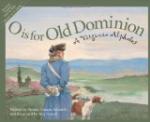About 1616, he secured a grant of several thousand acres of land in the neighbourhood of this creek that we were now lying in, and the estate became known as Brandon—Martin’s Brandon. The terms of the grant were so unusually favourable that they came near making the Captain a little lord in the wilderness. He was to “enjoye his landes in as large and ample manner to all intentes and purposes as any Lord of any Manours in England dothe holde his grounde.” And he certainly started out to do it.
But soon the General Assembly attacked the lordly prerogatives of the owner of Martin’s Brandon. It did not relish the idea of making laws for everybody in the colony except John Martin, and he was requested to relinquish certain of his high privileges. This he refused to do, saying, “I hold my patente for my service don, which noe newe or late comers can meritt or challenge.” After a while, however, he was induced to surrender the objectionable “parte of his patente,” and manorial Brandon became like any other great estate in the colony.
After several changes of ownership, Brandon came into the possession of another prominent colonial family, the Harrisons. The founder of this Virginia house (the various branches of which have given us so many men prominent in our colonial and national life) was Benjamin Harrison, one of the early settlers, a large land holder, and a member of the Council. His son Benjamin (also a man of position in the colony and a member of the Council) was probably the first of the family to hold lands at Brandon.
But it was not until the third generation that the Harrisons became thoroughly identified with the two great plantations that have ever since been associated with the name; Benjamin Harrison, the third, acquiring Berkeley, and his brother Nathaniel completing the acquisition of the broad acres of Brandon. Berkeley passed to strangers many years ago; but Brandon has come down through unbroken succession from the Harrisons of over two centuries ago to the Harrisons of to-day.
That makes a great many Harrisons. And as it happened, while Gadabout was on her way that day to visit their ancestral home, a genealogical chart with its maze of family ramifications was lying on a table in the forward cabin, and Henry saw it.
“King’s sake!” he exclaimed. “That must be the host they couldn’t count. Don’t you know John say how he saw a host no man could number? That’s cert’nly them!”
As we approached the Brandon pier, we saw a man on it who proved to be the gardener and who helped to handle our ropes as we made our landing. Then, with the aid of a beautiful collie, he led us up the slope toward the still invisible homestead.
Entering the wooded grounds through quaint, old-fashioned gateways, we followed our guide along a trail that topped the river bluff, where honeysuckle ran riot in the shrubbery and tumbled in confusion to the beach below. The trail ended in a cleared spot on the crest of the bluff—a river lookout, where one could rest upon the rustic seat and enjoy the ever-varying picture of water, sky, and shore.




